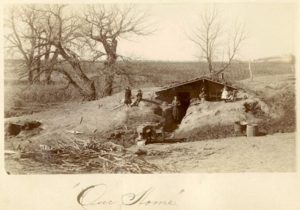Reading Mindfully: Willa Cather’s “A Wagner Matinee”
December 2, 2016 | Capria Jaussen, Cecily Erin Hill

Each month, we offer you a chance to read mindfully, to use literature to think about your perceptions and reactions to the world in which we live and work. Through these short texts and accompanying questions, we hope to give you a small taste of Books@Work. Please grab a friend or colleague to read, share and discuss – and send us your thoughts.
Willa Cather’s “A Wagner Matinee” was among her first published stories, appearing in Everybody’s Magazine in 1904, and then in her first short story collection, The Troll Garden. An iconic American author of short stories and novels, Cather was born in Virginia and moved to a Nebraskan homestead when she was 10 years old. Her writing often dwells on life in the western United States, as well the role of art in the world.
As you read “A Wagner Matinee,” consider these questions:
- How does the work we do affect our souls?
- What life experiences have left you feeling isolated from others? Which ones have made you feel connected?
- What sacrifices have you made to live the life you wanted? Were they worth it?
A Wagner Matinee
by Willa Cather

“An Unidentified Family in Front of Their Dugout, Presumably Near McCook, Red Willow County, About 1890,” [Public Domain] via the Nebraska State Historical Society
The name of my Aunt Georgiana called up not alone her own figure, at once pathetic and grotesque, but opened before my feet a gulf of recollections so wide and deep that, as the letter dropped from my hand, I felt suddenly a stranger to all the present conditions of my existence, wholly ill at ease and out of place amid the surroundings of my study. I became, in short, the gangling farmer-boy my aunt had known, scourged with chilblains and bashfulness, my hands cracked and raw from the corn husking. I felt the knuckles of my thumb tentatively, as though they were raw again. I sat again before her parlor organ, thumbing the scales with my stiff, red hands, while she beside me made canvas mittens for the huskers.
Continue reading “A Wagner Matinee” or listen to the story.
We hope you will enjoy hearing the music of many of the Richard Wagner pieces mentioned in the story:
Prize Song | Pilgrim’s Chorus | Siegfried Funeral March
Image: Jules Tavernier, Crossing the Prairie, late 19th century, [Public Domain] via Wikimedia Commons
Learn More About Our Programs or Read More on The Notebook.

